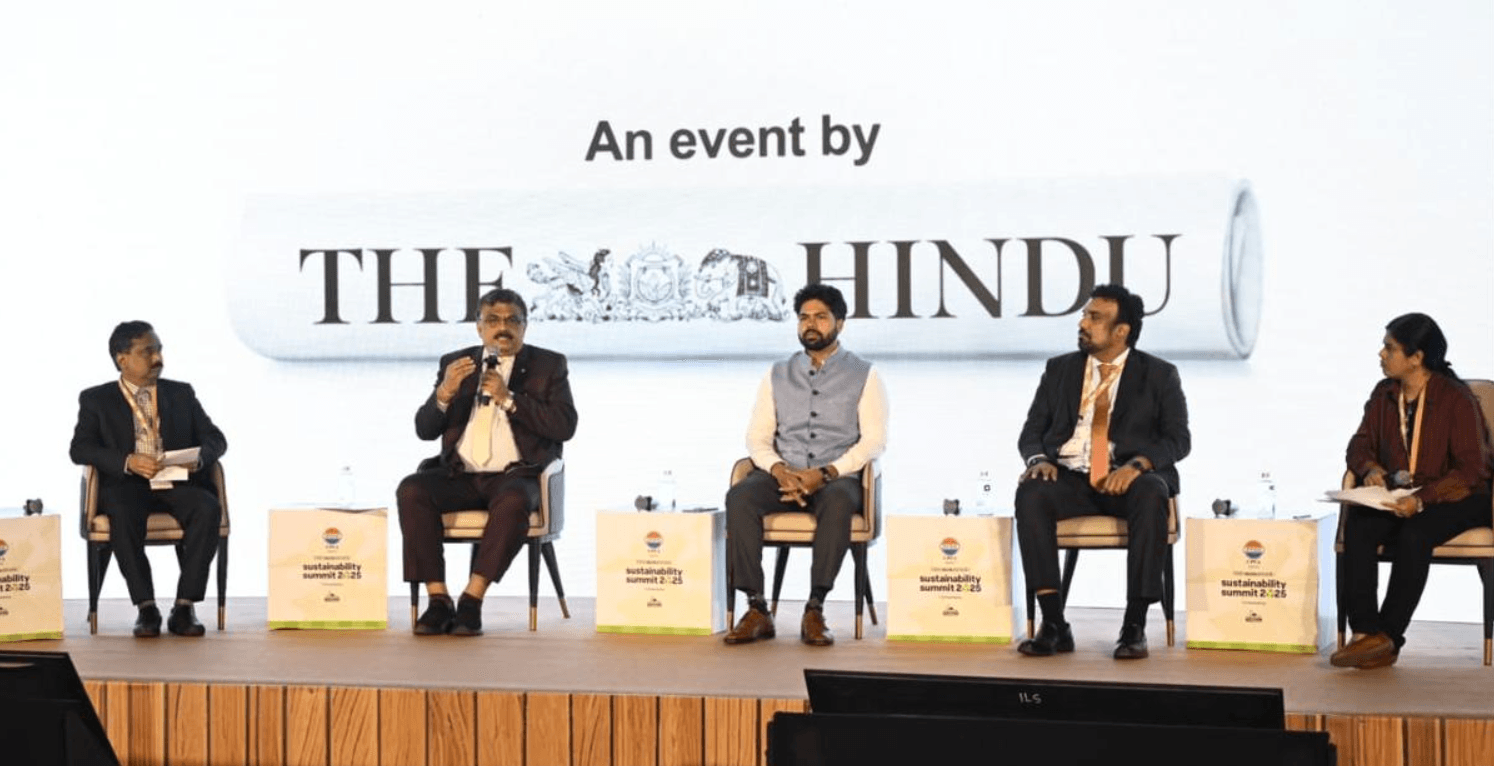Experts call for stronger collaboration among academia, industry, and citizens for sustainable water management
Date : 2025-11-07

G. Ravikumar, Professor and Director of the Centre for Water Resources at Anna University, said that while civil engineers currently handle most of the water-related work in departments such as the CMWSSB, WRD, and TWAD Board, they often lack a deep understanding of hydrological systems
With Chennai’s growing demand for water and rising stress on local sources, experts at a panel discussion on ‘Water for Tomorrow - Sustainable Management and Industrial Responsibility’ at The Hindu and CPCL’s Sustainability Summit 2025 highlighted the need to recycle and reuse every drop through advanced treatment technologies and better integration between policy, industry, and research.
G. Ravikumar, Professor and Director of the Centre for Water Resources at Anna University, said that while civil engineers currently handle most of the water-related work in departments such as the CMWSSB, WRD, and TWAD Board, they often lack a deep understanding of hydrological systems. “Most civil engineering graduates study very little about water resources or environmental management,” he said, and proposed launching a dedicated undergraduate programme in Water Resources Engineering to build future expertise.
Speaking from the industry’s perspective, P. Kannan, Director (Operations) at Chennai Petroleum Corporation Ltd (CPCL), said that industries are increasingly adopting technologies to reduce freshwater use and achieve zero liquid discharge.
“Nearly half of the water used in refineries goes into cooling and generation processes. We treat and reuse most of this water within the plant itself, cutting down on fresh water consumption,” he said. He added that closer collaboration between industry, government, and research institutions was needed to develop indigenous water treatment technologies.
Gaurav Kumar, Executive Director of the Chennai Metropolitan Water Supply and Sewerage Board (CMWSSB), explained that the city is advancing circular water use through its Tertiary Treatment Reverse Osmosis (TTRO) and Tertiary Treatment Ultra-Filtration (TTUF) plants. “Through these facilities, used and black water are thoroughly treated and reused or released into lakes for recharge,” he said. He added that the board plans to invite school and college students to visit these plants to build awareness and encourage water conservation from a young age.
Navin Kumar, Managing Director of Navin’s, said that the real estate sector has steadily adopted water-efficient technologies, including greywater recycling, rainwater harvesting, and low-flow fixtures. “In commercial buildings, recycled water can meet up to 60% or 70% of requirements,” he said.
Need for sustained awareness
Mr. Navin added that creating public awareness on water conservation cannot be a one-time exercise and that long-term awareness campaigns and stronger citizen participation are key to building a circular water economy.
The session was moderated by K. Lakshmi, Deputy Editor, Reporting, The Hindu.
The Hindu Sustainability Summit 2025 is presented by Chennai Petroleum Corporation Limited (CPCL) and co-presented by Tamil Nadu Green Climate Company (TNGCC). The Sustainability Partner is Navin’s and the Associate Partner is NLC India Limited. The Green Partner for the event is Larsen & Toubro (L&T) and Television Partner Puthiya Thalaimurai. While the Industry Partner is Confederation of Indian Industry (CII), the Knowledge Partner is Sustainable Energy and Environment Council (SEEC). The Digital News Partner for the event is The Federal.
For more information, please visit - https://www.thehindu.com/news/national/tamil-nadu/experts-call-for-stronger-collaboration-among-academia-industry-and-citizens-for-sustainable-water-management/article70251901.ece/amp/

